Installing solar panels is no easy-peasy affair. As more homeowners jump on the solar bandwagon, drawn by the promise of slashing energy bills and kissing the grid goodbye, a few common blunders tend to pop up more often than not. From mismatched panels looking like a patchwork quilt on your roof to underestimating your sunny real estate, going solar can quickly turn from a bright idea to a cloudy conundrum. So, let’s shine some light on these frequent faux pas to help you install solar with fewer bumps.
1] Rushing the Decision with Phone Sales
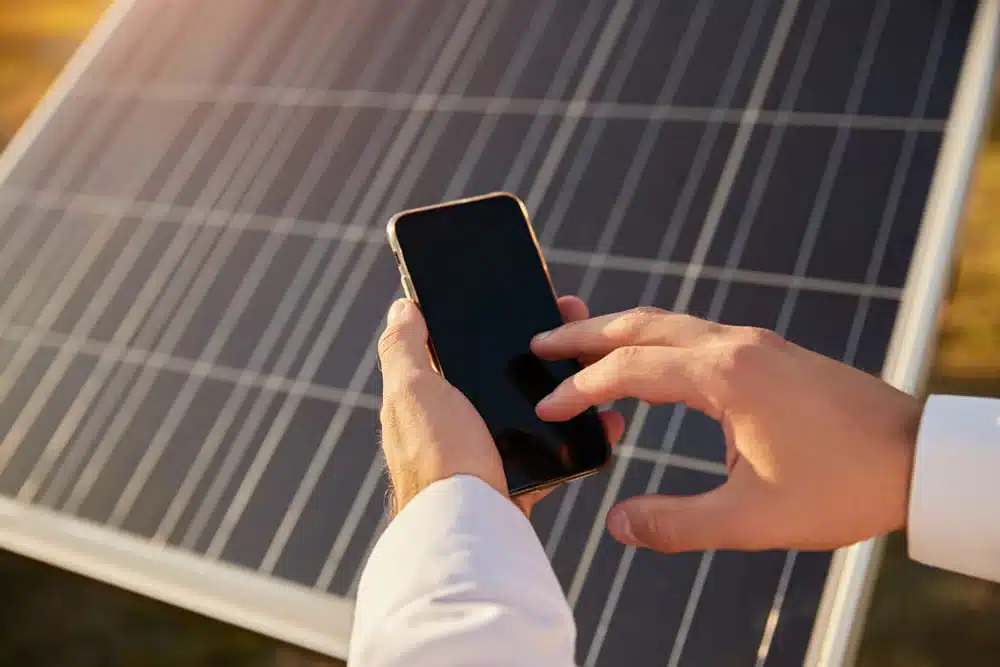
In their eagerness to go solar, some homeowners might feel the heat from high-pressure phone sales pitches. These calls often come with the promise of irresistible deals that seem too good to let the sun set on. However, agreeing to a solar installation over the phone without a proper site inspection is akin to buying a house without ever stepping inside—risky and a tad reckless.
Why Site Inspections Matter
Every home is as unique as the people living in it, especially when it comes to solar potential. Factors like roof size, angle, existing shading, and even local weather patterns will determine the most effective solar setup. Without a professional evaluating these aspects in person, you risk ending up with a solar system that’s as mismatched to your home’s needs as sandals with socks.
The Pitfalls of Phone Sales
- Improper Fit : A system sold over the phone might not fit the dimensions or orientation of your roof, leading to inefficient energy production.
- Oversizing or Undersizing : Without assessing your actual energy consumption and roof potential, there’s a high chance of installing a system that’s too big or too small, which means you either overspend or under-save.
- Missed Opportunities : Many phone sales skip over the details of additional benefits, like battery storage options or technology that could enhance your return on investment.
Before making a decision that will impact your home and wallet for decades, ensure you have all the facts straight. A little patience and a lot of due diligence can go a long way in ensuring your solar installation is not a catastrophe. Remember, a good deal today should still be a good deal tomorrow, so take the time to get it right.
2] Insufficiently Researching the Solar Company

Choosing a solar company is a bit like picking a partner—it’s not just about the flashy first impression but also what they bring to the table long-term. Unfortunately, not all homeowners dig deep enough into a solar company’s background, expertise, and reputation. This oversight can lead to partnering with less-than-stellar providers who may disappear when you need them most or fail to deliver on promises.
Why Thorough Research Is Crucial
- Quality of Service : A reputable solar company will not only install your system but also provide ongoing support and maintenance. Checking reviews, testimonials, and case studies can give you insight into the reliability and professionalism of the company.
- Expertise and Certification : Solar technology is complex, and it evolves with every passing day. It’s essential to choose a company with certified technicians who are trained and updated on the latest in solar advancements to ensure your system is installed correctly and efficiently.
- Financial Stability : The longevity of a solar company matters, especially when it comes to warranties and service agreements. A company that’s been in business for many years is more likely to be around to honour their commitments than a newcomer who might not weather economic downturns.
Steps to Take Before Committing
- Check Certifications and Licences : Ensure the company is licensed and certified by the appropriate authorities. How? Check for membership in industry associations, which often require companies to stick to strict standards.
- Read Reviews and Seek Referrals : Look for online reviews and ask the company for customer references. Speaking to past customers can provide a real-world glimpse into what your experience might be like.
- Compare Multiple Quotes : Don’t settle on the first company that comes your way. Get quotes from several providers to see who offers the best value for the quality and services you need.
- Investigate Post-Installation Support : A solar installation is not a “set it and forget it” solution. Ensure the company offers solid warranty terms and clear, accessible post-installation support.
Taking the time to thoroughly vet a solar company can safeguard you against headaches and ensure that your investment adds value to your home and meets your energy needs effectively for years to come. Remember, the sun might be free, but the technology to harness it is not—choose wisely!
3] Focusing Only on Price

Solar panels are not exactly cheap, which is why the allure of a low price tag can be tempting. After all, who doesn’t want to save money where they can? However, opting for the cheapest quote might save you cents today but could cost you a fortune in the long run. Skimping on price often means compromising on the quality of the components, the installation practices, and the robustness of warranty coverage—all crucial elements for a successful solar setup.
The True Cost of Cheap Solar
- Inferior Components : Cheaper systems might use lower-quality panels or inverters that are less efficient and more prone to failures. This can lead to decreased energy production and frequent costly repairs or replacements.
- Subpar Installation : Proper installation is key to maximising a solar system’s life and efficiency. Low-cost quotes may come from companies that cut corners during installation with improper mounting, poor wiring, and unsafe practices.
- Limited Warranty Coverage : Affordable options often come with minimal warranty protection. If something goes wrong, you might find that the warranty terms are restrictive or that service claims are not handled promptly.
Balancing Cost and Quality
- Assess Component Quality : Research the brands of solar panels and inverters that the company offers. Look for products with strong reviews and proven track records in efficiency and reliability.
- Understand the Scope of Installation : Enquire about the installation process. Reputable companies are usually open about their methods and happy to explain how they ensure the longevity and effectiveness of your solar system.
- Review the Warranty Details : A solid warranty can protect your investment for decades. Ensure you understand what is covered and for how long. Reliable solar companies offer comprehensive coverage that includes performance guarantees and workmanship warranties.
Get What You Pay For
Investing a bit more upfront in a higher quality solar system often yields greater returns over time. Not only will you enjoy more efficient energy production and fewer maintenance headaches, but you’ll also benefit from the peace of mind that comes with knowing your system is built to last. When reviewing quotes, remember that the cheapest option isn’t always the most cost-effective. Investing wisely in your solar system means considering the total value offered, not just the initial price.
4] Not Understanding Warranties
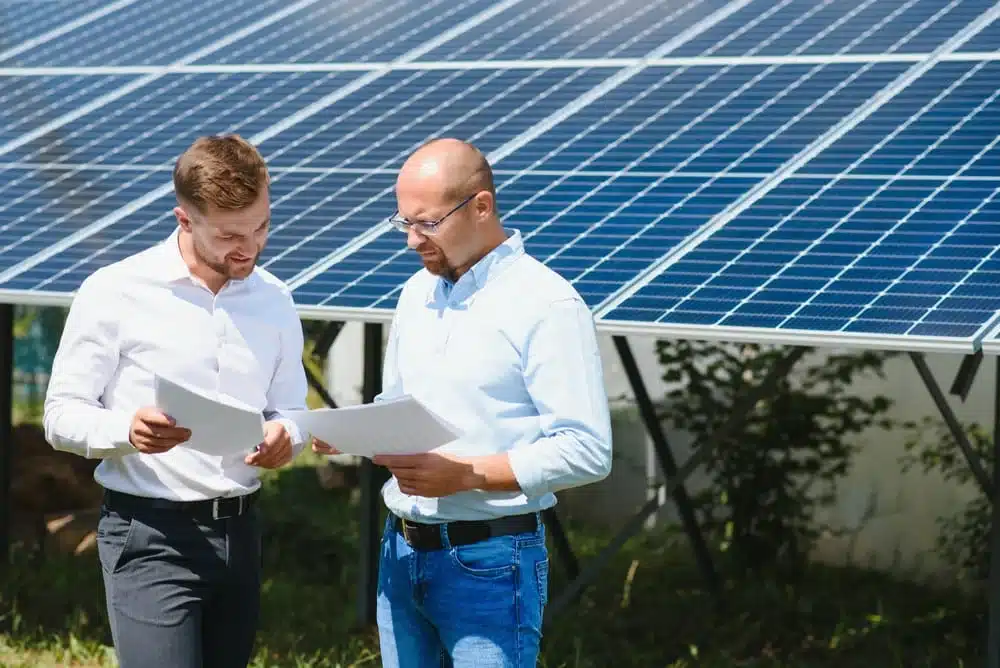
Solar warranties can be as tricky as a maze—miss a turn, and you might find yourself facing unexpected and costly repair bills down the line. Many homeowners jump into solar investments without a thorough understanding of the warranties covering panels, inverters, and installation workmanship. This oversight can leave them exposed to stress-inducing expenses if components fail or performance falters.
Why Warranties Matter
- Component Coverage : Solar panels and inverters are the heart and brain of your solar system, respectively. Warranties for these components protect against defects and ensure they perform as expected for a specified period.
- Workmanship Warranty : This covers the installation quality. If problems arise due to how the system was installed, a robust workmanship warranty will ensure repairs are made at no additional cost to you.
- Performance Guarantees : Some warranties also include performance guarantees that assure a certain level of electricity production over time.
Key Aspects of Understanding Warranties
- Duration and Terms : Know how long each warranty lasts. Panel warranties can range from 10 to 25 years, while inverter warranties might be shorter. Workmanship warranties typically last 1-10 years depending on the installer.
- What’s Covered and What’s Not : It’s important to understand what each warranty covers. For instance, does the panel warranty cover environmental damage or just manufacturing defects? Does the inverter warranty include the replacement labour, or just the parts?
- Transferability : If you sell your home, can the warranties be transferred to the new owner? This feature can exceptionally enhance the value of your property.
- Claim Process : Understand the procedure for filing a claim. Knowing whom to contact and what documentation is needed can expedite the process and reduce stress if something goes wrong.
Avoiding Warranty Pitfalls
- Read the Fine Print : Always read the warranty terms carefully before finalising your solar purchase. If certain aspects are unclear, ask for clarification.
- Compare Warranty Terms :When evaluating solar quotes, consider the warranties offered by each company. A lower cost system with a shorter or more limited warranty might not be as appealing as a slightly more expensive system with comprehensive, long-term coverage.
- Check Company Reputation : Ensure that the company offering the warranty is reputable and likely to be in business for the long term. A warranty is only as good as the company that stands behind it.
By taking the time to fully understand the warranties associated with your solar system, you can protect your investment and enjoy peace of mind knowing that your solar system is covered for years to come. Proper warranty knowledge prevents unforeseen costs and ensures that your solar journey is smooth and beneficial.
5] Missing Rebate Application Deadlines

Solar installations come with a bright side of financial incentives, including various rebates and Small-scale Technology Certificates (STCs). However, keeping track of the timelines for these benefits can be tricky. One common pitfall for many new solar adopters is missing the deadlines for rebate applications, which can result in losing out on huge savings.
Understanding the Impact of Missing Deadlines
- Lost Financial Benefits : Rebates and STCs can substantially reduce the upfront cost of installing a solar system. Failing to apply in time means forfeiting these benefits, ultimately making your investment more expensive than it needs to be.
- Delayed Project Timelines : Missing a deadline may not only mean losing out on rebates but can also lead to delays in project completion as financing and budgeting plans are recalculated.
Strategies to Ensure Timely Applications
- Know the Deadlines : Each rebate and incentive program has its own set of deadlines based on installation dates, application periods, or funding rounds. Be aware of these dates well in advance.
- Prepare Documentation Early : Many rebate applications require detailed documentation, including proof of residence, installation details, and more. Gathering these documents early can prevent last-minute rushes and missed deadlines.
- Work with Knowledgeable Installers : Choose a solar installer who is familiar with the local and federal rebate programs. Experienced professionals help you through the application process and ensure that all paperwork is in order and submitted on time.
- Regular Follow-Ups : Once your application is submitted, keep track of its status through regular follow-ups. This proactive approach can help address any issues quickly and keep your application on track.
Leveraging Technology
- Set Reminders : Use digital calendars and reminder systems to keep track of important dates related to your rebate applications.
- Digital Document Storage :Store all related documents digitally in a secure place so that they can be easily accessed and submitted when needed.
Missing out on rebates due to overlooked deadlines can add unnecessary costs to your solar installation. By staying organised, preparing in advance, and working with experienced professionals, you can maximise the financial incentives available and ensure that you get the best bang for your buck during your transition to solar.
6] Neglecting System Monitoring
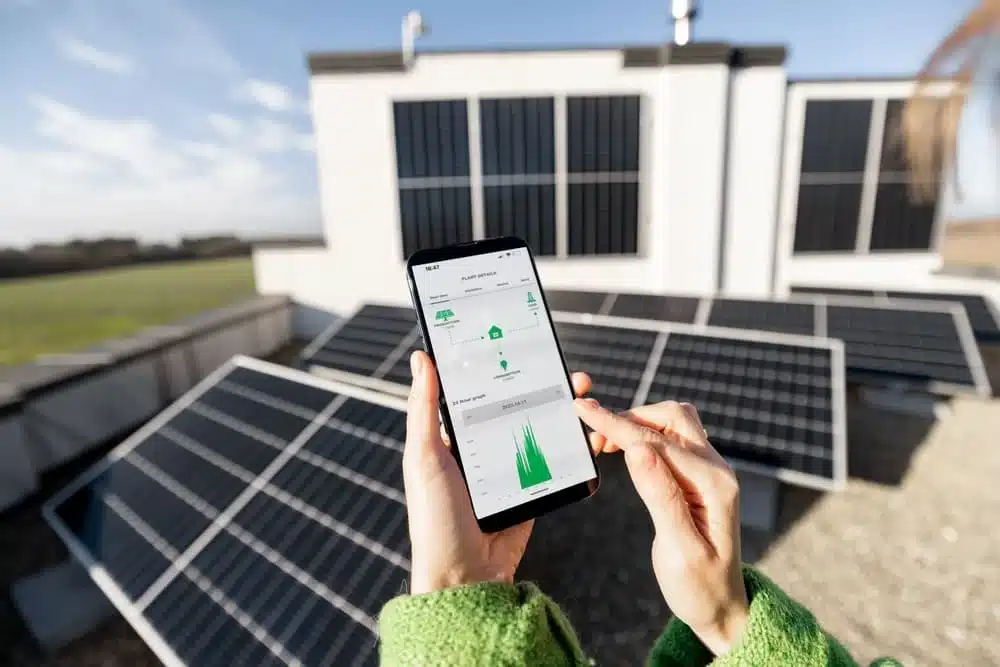
Your solar system might be built to run smoothly, but without a regular check-up, you won’t know if it’s running at peak efficiency or limping along. Monitoring your solar system isn’t just about ticking a box; it’s essential for catching the sneaky, small issues before they turn into big headaches.
Why Monitoring Matters
- Spot Performance Dips : Even a small shadow from a new tree branch or a dusty panel can steal precious watts from your production. Regular monitoring helps you spot these issues quickly.
- Catch Issues Early : It’s easier to fix a loose wire or a glitchy inverter now than to replace a fried system later. Early detection through monitoring means less downtime and more savings.
- Maximise Your Investment : You’ve paid good money for your solar setup. Monitoring ensures you’re getting every kilowatt you bargained for.
How to Stay on Top of Monitoring
- Use Smart Monitoring Tools : Most modern solar systems come with apps or online tools that provide real-time data on your energy production and consumption. Use them to your advantage.
- Set Regular Check-ins : Whether it’s weekly or monthly, setting a regular date to review your system’s output can help turn monitoring into a habit.
- Respond to Alerts Promptly : If your system flags an issue, don’t sit on it. The faster you act, the smaller the problem remains.
Ignoring your solar system’s performance is like ignoring a warning light on your car’s dashboard—it might not seem urgent at first, but it can lead to bigger problems down the road. Stay vigilant, keep an eye on the data, and ensure your solar investment is performing well day after day.
7] Not Considering Future Needs

Installing a solar system isn’t just about meeting today’s energy needs. It’s about anticipating how your electricity consumption might evolve over time. When homeowners fail to consider their future energy requirements, they might end up with a system that’s underpowered tomorrow even if it’s adequate today. This short-sighted approach can limit the benefits of going solar and may lead to additional costs down the line.
The Risks of Underestimating Future Needs
- System Underperformance : As families grow or new electric appliances and vehicles are introduced into the home, energy demands can increase. A system that’s not sized for future use may not deliver the expected energy savings or independence from the grid.
- Costly Upgrades :Expanding a solar system isn’t always as simple as adding more panels. It might require upgrading other components like inverters, or even redesigning the entire system, which can be far more expensive than installing a correctly sized system in the first place.
Planning for Tomorrow’s Energy Needs
- Assess Future Plans : Consider upcoming changes in your lifestyle or household that could increase your energy usage, such as planning for a home office, purchasing an electric vehicle, or expanding your family.
- Consult with Professionals :Solar professionals can help forecast your future energy needs based on trends and personal plans. They can design a system that grows with you, potentially including options for easy expansion.
- Opt for a Modular System :Some solar systems are designed to be modular, allowing for easier and more cost-effective expansion. Discuss these options with your installer to ensure your system can evolve as your needs do.
Leverage Technology
- Energy Management Systems : Modern energy solutions include management systems that help monitor and predict energy usage, giving you insights that can guide future expansions.
- Smart Home Integration : As homes become smarter and more connected, integrating your solar system with home automation tools can help optimise energy use and ensure you stay ahead of your consumption patterns.
By taking the time to consider not just your current but also your future energy needs, you can ensure that your solar investment is not only adequate but also adaptable. This foresight can save you from future frustrations and additional expenditures.
8] Ignoring Hidden Costs
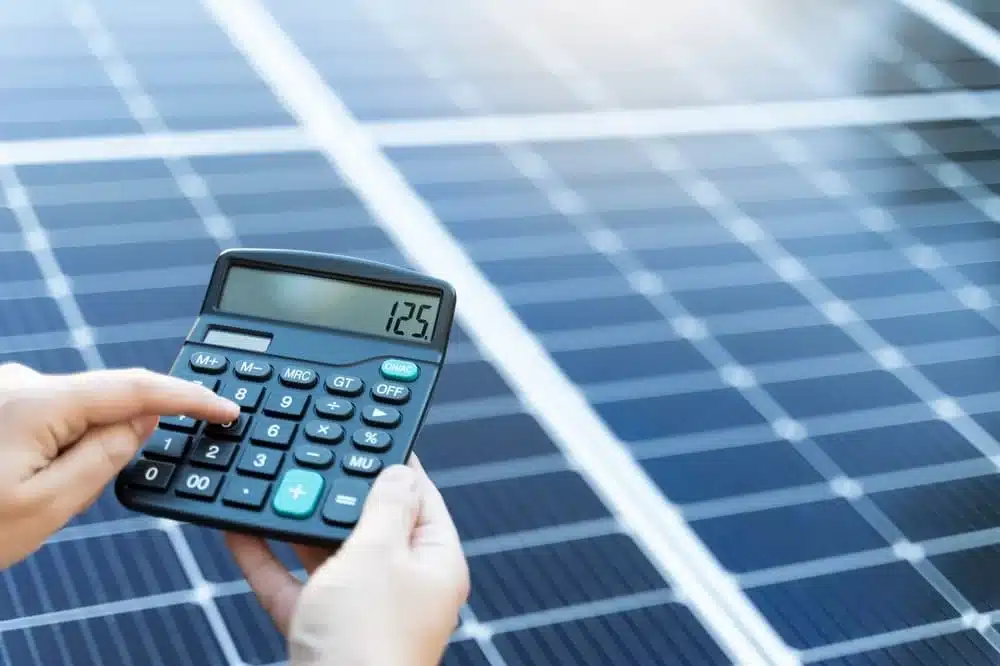
When it comes to solar installation, what you see in the initial quote isn’t always what you get. Beyond the basic cost of panels and installation, there are several less obvious expenses that can catch you off guard if you’re not careful. Ignoring these hidden costs can lead to surprises that inflate your budget and diminish the overall savings you expect from going solar.
Common Overlooked Expenses
- Meter Upgrades : Older electrical meters might not be compatible with a new solar system. Upgrading to a smart meter that can handle net metering—crediting you for the electricity your system sends back to the grid—is often necessary but can be an additional cost.
- Connection Fees : There may be fees associated with connecting your solar system to the local utility grid. These can vary depending on your location and the utility company’s policies.
- Permitting and Inspection Fees : Depending on where you live, you might need to pay for building permits, zoning permits, and mandatory inspections before and after your solar system is installed.
- Ongoing Maintenance : While solar panels are famously low-maintenance, they aren’t no-maintenance. You may need to budget for occasional cleaning, especially in dusty areas or where bird droppings are a problem, and repairs or replacements of components like inverters.
How to Account for These Costs
- Ask for a Detailed Quote :Ensure that your solar provider includes all possible costs in their proposal. This should cover everything from installation to any additional equipment and fees for permits or services.
- Research Local Requirements : Learn about your local government and utility company’s requirements and fees for solar installations. This can help you estimate costs more accurately and avoid surprises.
- Plan for the Long Term : Consider setting aside a small percentage of your expected savings for maintenance and unexpected repairs. This financial cushion can help ensure that minor issues don’t disrupt your use of the system.
Consider Total Ownership Costs
- Evaluate Financial Incentives : Remember to factor in any available tax credits, rebates, or incentives that can offset some of the upfront and hidden costs.
- Long-Term Savings vs. Initial Costs : When assessing the viability of solar, consider the long-term savings against the total initial outlay, not just the purchase price of the panels. This broader perspective can help you make a more informed decision.
If you understand and prepare for the full range of costs associated with solar installation, you can ensure a more accurate budget. This preparation helps safeguard against unexpected financial strains.
9] DIY Installation Attempts
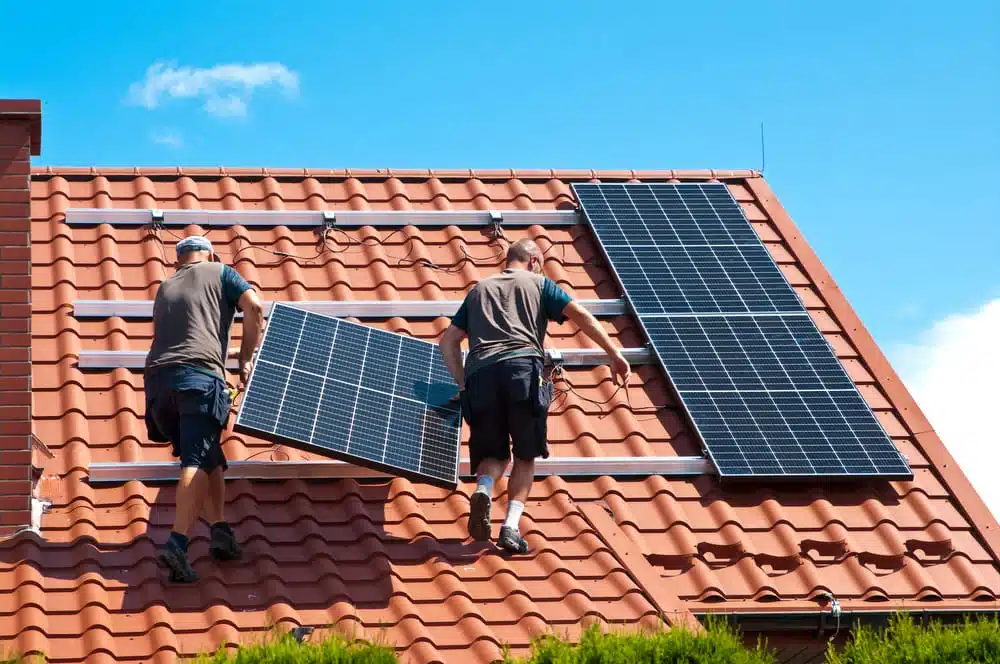
While tackling home improvement projects on your own can be rewarding and cost-effective, installing solar panels is not a DIY-friendly task. The complexities and risks associated with solar installations make them better suited for professional handling. If you are thinking you’ll skimp on setup costs, attempting to install solar panels yourself can lead to severe consequences, like safety hazards and voided warranties.
Risks of DIY Solar Installations
- Safety Hazards : Solar panel installation involves working with high voltage electricity and often requires being on rooftops. Without proper training and equipment, these conditions can pose risks of electrical shocks or falls.
- Poor Installation Quality : Properly installing solar panels requires knowledge and skills to ensure they are safe, efficient, and compliant with local codes. Incorrect installation can lead to structural damage, reduced efficiency, and even fires.
- Voided Warranties : Many solar panel manufacturers will only honour warranties if the installation is carried out by certified professionals. A DIY installation could mean forfeiting these protections, leaving you uncovered in the event of defects or malfunctions.
- Compliance Issues : Most jurisdictions have strict regulations and standards for solar installations, including permits and inspections. DIY installations might not meet these standards, resulting in fines, forced removals, or costly modifications.
Why Professional Installation Matters
- Expertise and Experience :Certified solar installers bring a wealth of experience and are trained to handle the high voltages and structural considerations involved in mounting solar panels. They know how to optimise the system for maximum efficiency and durability.
- Safety Compliance : Professionals are equipped with the proper tools and safety gear and follow industry-standard safety protocols to reduce the risk of accidents.
- Warranty and Support : Using a professional installer ensures that your system’s warranty remains intact. Plus, many installers offer additional guarantees on their workmanship for extra peace of mind.
- Permitting and Inspections : Solar installers are familiar with local codes and can finish off the permitting process smoothly. They ensure that installations are up to code and will pass any required inspections.
Considerations Before Deciding
- Evaluate the Total Cost : When considering a DIY approach, factor in the loss of warranties, the cost of tools and equipment, and the value of safety and compliance. Often, the cost savings of DIY are overshadowed by these factors.
- Consult with Professionals :Even if you decide to undertake some tasks yourself, consulting with a professional can provide valuable insights and help you avoid common pitfalls.
While DIY projects can be tempting for hands-on homeowners, solar panel installation is best left to the professionals. The risks involved with DIY solar setups far outweigh the savings, making professional installation the safer and more reliable choice.
Conclusion
Solar is exciting—it promises a greener lifestyle and incredible savings on energy bills. However, just like any major home improvement, the path is dotted with potential missteps. From getting swept away by a too-good-to-be-true phone sale to missing out on key financial incentives because of a deadline, the pitfalls are many. Remember, the goal of going solar is not just to harness the sun’s power but to do so efficiently and safely. Take the time to research, plan properly, and choose the right professionals. By sidestepping these common mistakes, you’ll ensure that your solar system is as reliable as the energy it harnesses.
Solar Run promises a hiccup-free transition to solar for home and business owners in Sydney, Newcastle, Victoria, Queensland, Adelaide, and Canberra. Contact us today to get your questions answered or to request a personalised quote.
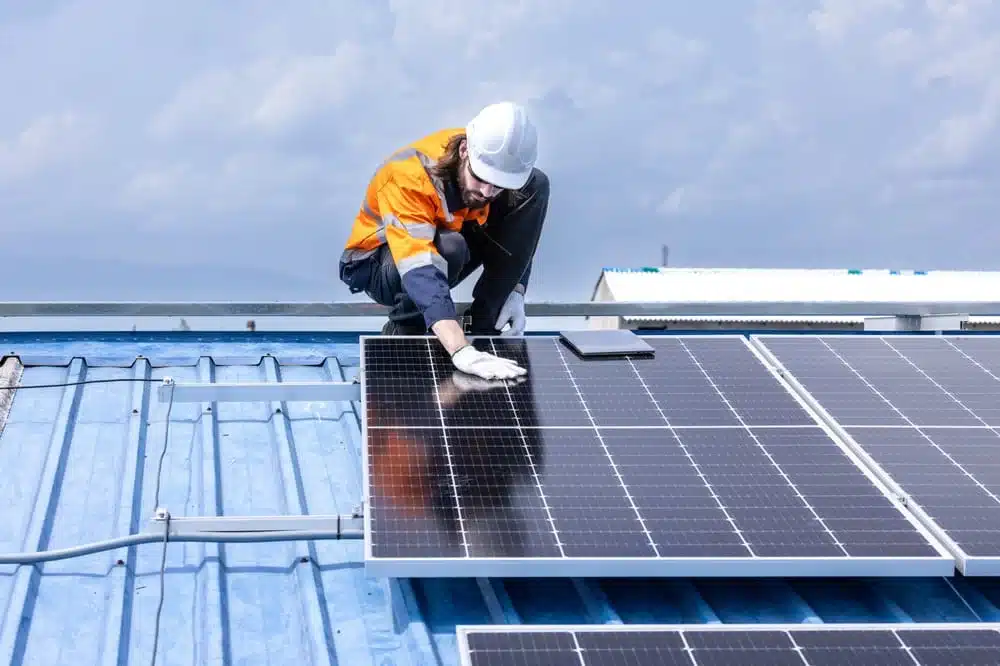









 Text Us
Text Us